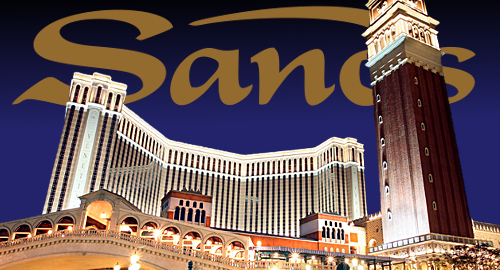 Casino operator Las Vegas Sands reported a rare net loss in the first quarter of 2020 but the company’s braintrust insists things are nowhere near as bad as they seem.
Casino operator Las Vegas Sands reported a rare net loss in the first quarter of 2020 but the company’s braintrust insists things are nowhere near as bad as they seem.
Figures released Wednesday show Sands generated revenue of $1.78b in the three months ending March 31, a 51.1% decline from the same period last year. Adjusted earnings were down 70% to $437m, operating income fell 94.3% to $55m and the company booked a net loss of $51m versus a $744m profit in Q1 2019.
The figures reflect the 15-day COVID-19 shutdown of all Macau casinos in mid-February and the market’s glacially slow recovery ever since. Sands China’s revenue was down 65% to $814m while the unit posted a net loss of $166m versus a $557m profit last year.
Sands’ Macau properties all posted significant declines in VIP gambling turnover, including a nearly 70% downturn at the company’s flagship Venetian Macao.
Worse, most of the VIP win rates were either flat or negative from the previous year, with the exception of Sands Cotai Central, which enjoyed an obscene 5.85% win rate – which really sucked because its turnover was down 91.4% year-on-year (due in part to construction stemming from the property’s ongoing conversion into The Londoner) to a mere $167m.
Mass market table drop was down over 60% at all of Sands’ Macau casinos, while slots handle was down by more than half. The pandemic scare began just as China was gearing up for the Lunar New Year period, meaning Sands missed out on its annual seasonal surge in holiday traffic.
The Marina Bay Sands casino in Singapore reported revenue falling by one-fifth to $612m while earnings fell one-third to $282m. VIP turnover slipped 7% while mass table drop and slots handle were both down nearly 20%. The property’s normally packed hotels reported occupancy falling 17 points to 81%.
Sands’ two casinos in Las Vegas reported revenue falling 15% to $400m while earnings dipped more than one-third to $88m. In keeping with the string of bad luck, Vegas table drop was up 6.4% but table win fell nearly three points, while slots handle was down nearly 10%. Hotel occupancy slipped 7.7 points to 87.2%.
Investors took the news surprisingly well, as the stock finished Wednesday’s trading up nearly 1% and the stock has gained 7% in after-hours trading.
Macau’s casinos may have reopened under new social distancing limits but Vegas remains on lockdown and Singapore’s casinos learned this week that they will remain shut through at least June 1. So Sands’ Q2 report could end up making Q1 look like the good ole days.
VEGAS RECOVERY WILL LAG ASIA
Despite the brutal math of Q1’s report, Sands chairman/CEO Sheldon Adelson expressed confidence that gamblers in each of Sands’ casino markets will return “as surely as day follows night.” Adelson suggested the recovery “could take more time [in Vegas] than in Asia” but he remains convinced that Vegas’ “best days are ahead of it.”
Sands President Rob Goldstein suggested that one of the reasons Asia would recover faster was that the local populations had endured previous pandemics such as SARS and swine flu, so “the idea of wearing a mask or social distancing or thermometer checks will not be difficult.”
Both Adelson and Goldstein suggested that China’s Individual Visit Scheme (IVS) that allows mainland residents to travel to Macau could be reinstated by mid-May or closer to June. Goldstein added that the lifting of the 14-day quarantine policy in Guangdong province “is pivotal. Once that’s open, it opens the doors for [other provinces] to follow.”
Goldstein repeated his comments from January that the pandemic restrictions were creating “pent-up demand” and that gamblers would “come back in force.” Goldstein said Wednesday that staff at Marina Bay Sands were deluged with “people calling to complain about the fact we’re closed and want to come gamble.”
Adelson was asked about his recent comments that the company would use its strong balance sheet to eye “strategic opportunities” that may arise from rival companies’ struggles. Adelson replied that “if we can find something good in Asia we’d certainly like to do that,” adding that this could mean either acquisition or building something new.
Adelson also assured investors that, while Sands may have suspended its dividend program, “I have not said ‘yay dividends and yay buybacks’ for the last time.” Adelson added the dividend had been suspended, not eliminated, and since he and his family were Sands’ largest shareholders, “we want the dividend reinstated more than you do.”